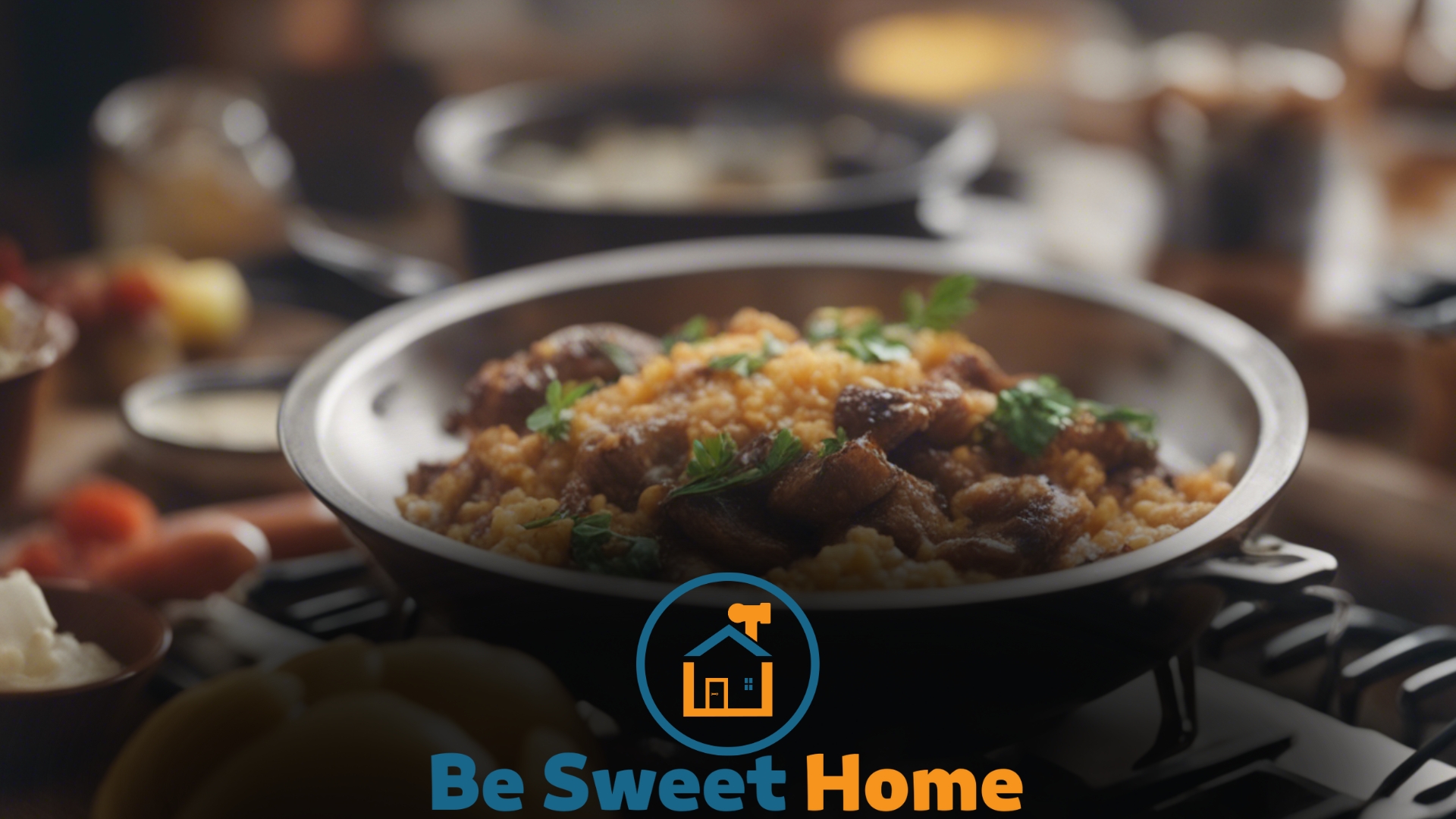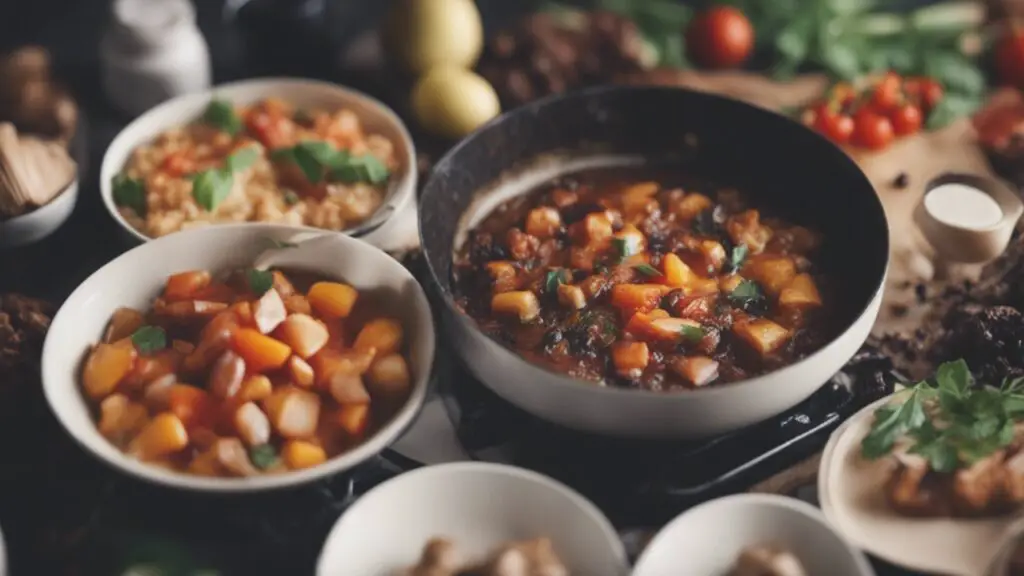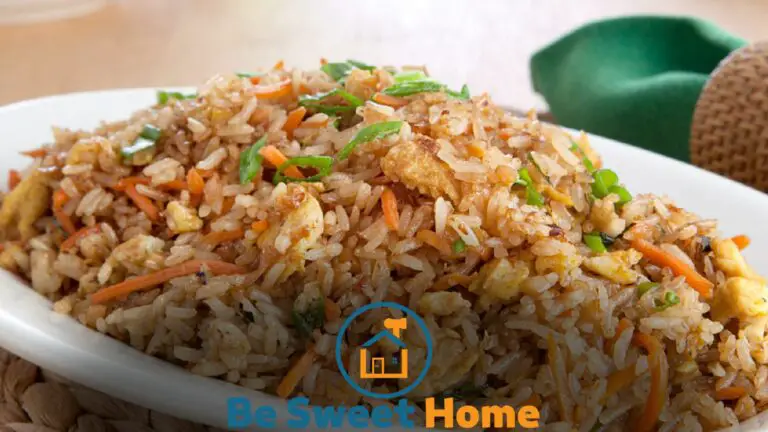

Cooking recipes offer guidance and save time, improving meal preparation efficiency. They inspire creativity while ensuring consistent results in the kitchen.
Cooking recipes are a cornerstone in culinary crafts, essential for amateur and seasoned chefs.
They serve as blueprints that facilitate the creation of sumptuous meals, enabling one to reproduce favorite dishes precisely.
Recipes also aid in portion control and budgeting, often including serving sizes and ingredient lists that help plan shopping trips.
For those with dietary restrictions, recipes provide a structured approach to modifying dishes, ensuring they meet personal health requirements.
Engaging with recipes can be a rewarding experience. It can enhance one’s cooking repertoire and foster a deeper appreciation of the culinary arts.
One aims to explore new cuisines or perfect a family classic, and cooking recipes act as both a tutor and a tool in the journey toward gastronomic delight.
Culinary Creativity and Personal Expression


Culinary Creativity and Personal Expression weave into the wonderful world of cooking recipes.
These recipes do more than feed the body. They feed the soul, offering a canvas for innovation and individuality.
Chefs and home cooks alike find joy and fulfillment in this creative process. Let’s dive into how recipes enhance creativity in the kitchen.
Fostering Kitchen Innovation
Kitchen innovation is the heart of culinary creativity. It transforms simple ingredients into extraordinary meals. See how recipes encourage you to experiment:
- Try new techniques: Recipes guide you to explore unfamiliar cooking methods.
- Mix and match: They suggest combinations you may not think of alone.
- Risk and reward: Creative risks often lead to delicious rewards and personal favorites.
Cooking as a Form of Art and Self-expression
Cooking is more than following steps; it’s a personal journey. Each dish tells a story about the creator.
- Expression of culture: Recipes allow you to showcase your heritage and traditions.
- Mood reflection: The flavors you choose can reflect your emotions.
- Artistic presentation: Arranging your dish allows you to design with colors and textures.
Health Benefits of Home Cooking
Embracing home cooking unlocks a treasure trove of health benefits. Engage in the joy of preparing meals that nourish both body and soul.
With each homemade dish, embark on a journey toward wellness. Discover the impactful ways home cooking can transform your health.
Control Over Ingredients and Nutrition
Take charge of what goes into your food. Home cooking allows for a meticulous selection of fresh and wholesome ingredients.
Let’s break down why this matters:
- Reduce processed foods: You avoid preservatives and unhealthy additives by picking your ingredients.
- Balance your diet: Tailor your nutrient intake by including foods supporting your health goals.
- Manage portions: Control the size of your servings to align with your nutritional needs, avoiding overeating.
Making Healthier Choices and Alternatives
Home cooking nurtures informed food choices. Discovering healthy swap-outs and creative twists reinvents traditional recipes.
Here’s how you can make better choices:
| Standard Ingredient | Healthier Alternative |
|---|---|
| White flour | Whole wheat or almond flour |
| Refined sugar | Honey or maple syrup |
| Cream | Greek yogurt |
Pick substitutions that maintain taste while boosting the nutritional value of your meals. Inspired choices enhance both flavor and health.
Step into the kitchen and embrace the power of home-cooked meals.
Nourish your body and relish the peace of mind of healthful eating.
Economic Advantages of Making Meals
Preparing meals at home can lead to significant savings. These savings come not just from lower ingredient costs but also from more efficient spending.
Let’s explore the economic benefits of creating your dishes at home and how they can enhance your budget.
Cost-savings of Home-prepared Dishes
Eating out can drain your wallet faster than you might expect. Home-cooked meals, on the other hand, are kinder to your budget.
By cooking at home, you control the ingredients and quantities, reducing the cost per meal. Here is a quick breakdown:
- Bulk purchases: Buying in larger quantities typically results in a lower price per unit.
- Store specials: You can plan meals around what is on sale at your local market.
- No service charges: You avoid paying service fees or tips associated with dining out.
Reducing Food Wastage Through Efficient Meal Planning
Food thrown away is money lost. By planning meals, you ensure every ingredient serves a purpose.
Here are some strategies to curb waste:
| Strategy | Benefit |
|---|---|
| Leftover recipes | Transform leftovers into new meals. |
| Portion control | Cook only what you need to avoid excess. |
| Proper storage | Preserve the shelf-life of ingredients. |
By utilizing these methods, you save money by reducing waste and contribute to a more sustainable household.
Social and Cultural Connections
Cooking recipes do much more than guide us in the kitchen. They become bridges, linking us to others and our heritage.
Sharing a meal is about creating bonds, and recipes play a central role. The benefits extend beyond the dinner table, weaving a web of social and cultural enrichment.
Bringing People Together Through Shared Meals
Families and friends unite over food. Cooking from recipes leads to gatherings, where everyone shares the meal, conversations, and experiences.
The act of eating together strengthens ties and fosters a sense of belonging.
- Intimate dinner parties
- Celebratory feasts
- Weekly family dinners
Preserving Family and Cultural Traditions
Family recipes are treasures passed down through generations. They preserve unique flavors and stories that might otherwise be lost.
Cooking traditional recipes is a way to honor our roots and understand our cultural identity.
| Holiday Recipes | Origin | Significance |
|---|---|---|
| Christmas Pudding | England | Symbolizes family unity |
| Diwali Sweets | India | Marks the victory of light over darkness |
Educational Opportunities in the Kitchen
The kitchen is not just a place to cook food. It’s a classroom full of delicious possibilities, and every recipe is a learning experience.
Grab an apron, and let’s discover the amazing educational benefits hidden in the art of cooking.
Learning New Skills and Cooking Techniques
Cooking is a hands-on activity that teaches many skills. Precision and patience are the keys to baking a perfect cake.
Kitchen math comes into play while measuring ingredients. Fine motor skills get a workout with chopping and kneading.
- Reading and comprehension improve by following a recipe.
- Science becomes tasty with experiments in leavening and emulsification.
- Multitasking and timing are crucial in juggling multiple dishes.
Discovering World Cuisines and Culinary History
Recipes are passports to different countries. With each dish, explore new cultures and traditions. It’s a savory trip around the world right from your kitchen!
- Make Italian pasta and learn about its origins in Sicily.
- Roll sushi and explore Japanese culinary techniques.
- Create a spicy Indian curry and discover the history of spices.
History lessons come alive with the tales behind each cuisine.
Understand the migration of ingredients like tomatoes from America to Europe. Every dish tells a story.
Emotional and Mental Well-being From Cooking
Cooking isn’t just a means to an end, to eat. It is a blend of art and therapy that nourishes the body and the soul.
Preparing meals offers a myriad of mental and emotional benefits, providing solace and therapy in the comfort of your own kitchen.
It’s like a dance of the senses, a potion for the heart, and food for the mind.
Mindfulness and Stress Relief During Meal Preparation
Lost in the aroma of spices and the chopping rhythm, cooking retreats into the present. The kitchen becomes a sanctuary where thoughts take a back seat.
Cooking demands focus on the task, whether searing a piece of meat to perfection or simmering a sauce to the right consistency.
By directing attention to these tasks, the mind eases into a state of mindfulness, shedding the day’s stress.
- Improvement in focus: By measuring ingredients and monitoring cooking times, attention sharpens.
- Reduction in stress levels: The repetitive actions of stirring and kneading can be incredibly meditative.
- Enhancement of sensory awareness: Engaging sight, touch, taste, and smell anchors one in the here and now.
The Joy and Satisfaction of Serving Loved Ones
Sharing a meal that you’ve prepared is an act of love. There’s a profound joy in seeing the faces of your family and friends light up with each bite.
It brings a sense of connection and belonging to the table.
| Activity | Emotional Benefit |
|---|---|
| Cooking for family | Builds stronger bonds and shows care. |
| Teaching children to cook | Creates lasting memories and skills. |
| Hosting friends | Spreads happiness and fosters community. |
Every dish, no matter how humble, becomes a symbol of your affection. It’s a delightful achievement to see your creativity manifest in a tangible, shareable form.
Ultimately, cooking is an extension of your heart to others. It’s a gift that keeps on giving, from the kitchen to the very last crumb.
Frequently Asked Questions
What are the Benefits of Food Recipes?
Food recipes enhance culinary skills, offer diverse meal options, and promote healthier eating habits.
They save time, reduce food wastage, and can make cooking enjoyable, boosting creativity in the kitchen.
Recipes also facilitate nutritional control, aiding in specialized diets and weight management.
What Benefits Do You Get From Cooking?
Cooking at home offers multiple benefits, including healthier meal options, cost savings, and the enjoyment of creating and sharing dishes.
It also improves nutritional intake and encourages family bonding.
What are the Benefits of Following a Recipe?
Following a recipe ensures consistent results, simplifies grocery shopping, enhances cooking skills, saves time, and reduces food waste by providing clear instructions and exact ingredient amounts.
What are the Advantages of Cooking Food?
Cooking food improves taste, kills harmful bacteria, and enhances digestion. It also enables nutrient absorption and extends shelf life.
Cooking diversifies meal options and can reduce the risk of foodborne illnesses.
Why are Homemade Recipes Healthier?
Homemade recipes often use fresh, whole ingredients and have fewer preservatives, allowing for better control over nutritional content and leading to a healthier meal.
Conclusion
Embracing home cooking offers numerous advantages, from healthier meals to the joy of creation.
It boosts nutritional intake and can shrink grocery bills, making wellness and the economy go hand-in-hand.
Share this journey with family for lifelong memories in the kitchen.
Discover these perks by trying new recipes today. Start cooking, and start benefiting!







